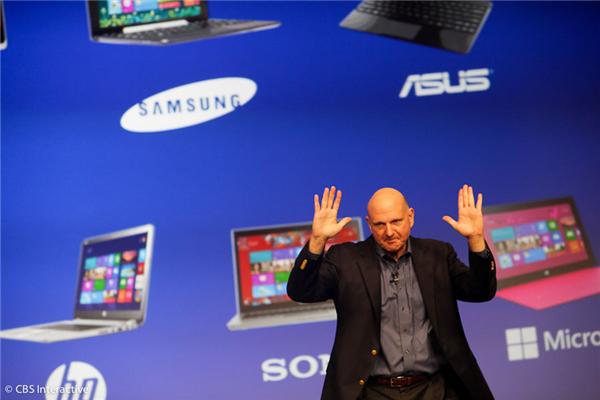Microsoft CEO hints (again) that more hardware is on the way

Not content with his first efforts hinting that the software giant would develop more hardware outside the Surface tablet products, Microsoft chief executive Steve Ballmer has thrown out another hint that there could be more Microsoft-branded devices en route.

Late in October, in an interview with the BBC's Rory Cellan-Jones, Ballmer said he Microsoft was "obviously" going to "do more hardware," and that it would "dive in" to any opportunity that presents itself.
And then nothing but a deathly quiet from the company. No word on what, when, or even why. This time around, however, he throws in a bit more meat to the bones of the rumors that Microsoft is building more devices.
Read more: Microsoft's radical new business plan is hidden in plain sight
"Do I anticipate that partners of ours will build the lion's share of all Windows devices over the next five years? The answer is, absolutely," Ballmer said, speaking at a technology industry event in California yesterday, according to Reuters.
"With that said, it is absolutely clear that there is an innovation opportunity on the scene between hardware and software and that is a scene that must not go unexploited at all by Microsoft."
Ballmer said the Redmond-based software giant will take the opportunity to look at how the firm could launch more devices by exploiting its position as not a strictly software or hardware maker, but a company of both and cloud-based services -- a so-called "devices and services" firm.
It comes less than a month after Microsoft launched the Surface RT tablet on the market, and only a couple of weeks after speculation suggested that the software giant would develop its own branded smartphone, the software giant's 'special partnership' with Nokia notwithstanding.
While Nokia builds the Lumia smartphones and Microsoft develops the Windows Phone platform, the software giant still controls the shape of its own ecosystem, the hardware and software combination. An interesting tidbit from Reuters:
Looking to Apple's success with its iPads and iPhones, Microsoft believes tightly controlling the design of both hardware and software can lead to superior consumer products.
That process can be brought in-house to develop internally -- but would it benefit the company in the long run? Microsoft may have seen "modest" Surface sales already but early figures suggest the Surface tablet may be the most popular Windows 8 device already.
If Microsoft brought its own smartphone -- just for the sake of argument -- it would likely have an even greater impact on its smartphone-building partners, including Samsung -- but notably Nokia and HTC, which are both struggling financially at the moment.
But whether or not this would do this remains a mystery. Above all else, it doesn't make sense. Sales in its Windows Phone space aren't exactly healthy -- even the Nokia Symbian and Samsung's Bada platform remains ahead of Microsoft's mobile software -- and it can't afford to cut out its existing market share partners unless it has a killer device that blows all other devices out of the water.
But nobody can guarantee that. Not even Samsung. Not even Apple (although, we have yet to be proved otherwise on that front.)
Earlier this year, Microsoft's annual 10-K filing with the U.S. Securities and Exchange Commission (SEC) noted that troubles lay ahead should Surface take off, with a particular edge on the firm's partners in the tablet space.
That's probably the biggest worry Nokia has at the moment. If Microsoft sneaks out in the middle of the night, leaving Nokia alone in the house on its own, to develop its own smartphone, not only will it break up the Nokia-Microsoft tag-team relationship but it may also be the final blow that kills off Nokia for good.
Could Microsoft live with that on its conscience? Likely, actually.